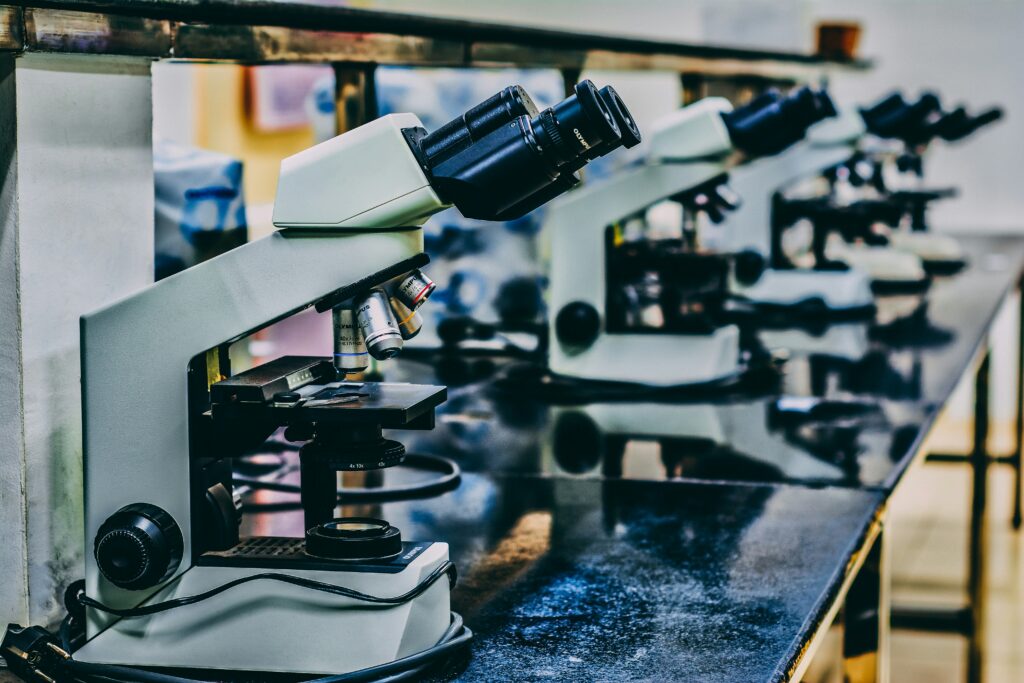
Why the search for truth needs more than Google
Roshaney Aftab thinks we shouldn’t be so sure about what we claim to know.
Is there no end to Google’s expansion? The tech giant’s latest step forward is a one billion dollar data centre which it is building in the UK on a 33-acre site in southern England. As one of its vice presidents stated, the centre will help “more people tap into the opportunities created by the country’s digital economy and … unlock new ways for AI-powered technologies to boost productivity, fuel creativity, improve health outcomes and unlock scientific discoveries”.
The demand for Google’s services is growing because our demand, our thirst, our obsession, for knowledge can’t stop growing either. We want to know ever more and we think we know ever more.
Our knowledge is ever expanding, but can we be sure it is always true? We tend to think that with every human discovery we are one step closer to having the answers to life’s questions. But the more answers we find, the more these provoke new questions.
And not all answers are equal. While some may indeed be indisputably true, others could be based on our false assumptions. For as inconsistent as our thinking may be, one thing is certain about human experience: just as we disprove the theories of the past, the beliefs of the present may someday be disproved.
Or if not disproved, they may be forgotten, discarded or simply transformed into novel ideas. Put simply, what we deem as truth now may not stand the test of time, or could in fact be false altogether.
We have seen this throughout history in the collapse of regimes, where a leader’s version of reality is rejected by the people in favour of a new truth (or a presumed one). Yet similar shifts occur everyday in milder, though no less important, ways. Particularly in the modern era, where information is not only readily available but often impossible to escape, discerning truth from falsehood is a duty imposed upon us all.
While not all regimes are on the brink of collapse, ideas and their validity certainly are.
It only takes a new piece of information for the legitimacy of another to be called into question.
Be it from an eyewitness challenging widely held rumours or raw data contradicting a politician’s promises, the things we hold true can be put in doubt at any time. Or the things we doubt can suddenly be considered truthful. Exaggerations can be taken as fact, opinions can be conflated as objective realities, and the ‘truth’ can be shaped by any who claim to possess it.
In other words, truth is not something unchanging or monolithic, rather it morphs with each moment as our understanding of it changes.
The possession of truth is more commonly referred to as knowledge. As we perceive, dissect and piece together information, our tentative discoveries eventually become conclusions. What began as a mere idea may someday be taught in educational institutions, proposed as self-evident knowledge that can explain the world around us.
While this may seem like an organic process where the ideas with the most merit are those taught, this again assumes knowledge to be a solid block, something unchanging that we can chip away at until we find a truth worth teaching at its core.

This is not to say that the content of a curriculum is never true, but that we should not so easily assume that it is always true. As the institutions which teach us knowledge (schools, universities etc) seek to explain reality, often, without realising it, they make it more than explain it. Or at least they decide what is reality for us, because behind every curriculum is a careful selection process: the choice of which things are considered true, what knowledge is worth sharing, whose ideas deserve elevation or whose must be squashed at all costs.
‘Knowledge’ involves a whole series of choices. It’s not just black and white facts; it involves human freedom, the grey area of deciding what we want to know.
What we want to know, and therefore what we consider true, also depends a lot on our point of view. The criteria will differ depending on the people involved, the issues at hand, and the countries, cultures or religions which feel they have a stake in providing the answer.
A scientist might give priority to truths known through empirical experimentation, whereas a religious person would prioritise spiritual truth or the doctrines of their particular creed. An artist would find truth in beauty or the hidden meanings they discover around them, whereas a philosopher would find truth in their intellectual musings.
Furthermore, considering the complexity of our identities, we often hold a variety of priorities and perspectives at any one time, through each of which our understanding of truth is further uniquely defined.
With such an array of variables involved in the production of knowledge, can we ever then reach ‘truth’ as an achieved goal? How can we ever be sure that we have reached the correct conclusion for anything at all?
The term ‘conclusion’ itself is deceptive as it implies finality, when in reality knowledge is ever-changing. It shifts with each statement, moves with each moment, adjusts with each affirmation of an idea – the game ‘Chinese whispers’ is an example of this.
What we call knowledge and truth are neither fixed targets nor static descriptions of reality, since while mankind’s collective knowledge has certainly expanded over time, this does not necessarily mean it has become more accurate or ‘truthful’.
Rather, its evolving nature means the things we hold true are simply a representation of our current beliefs, and not a universal or objective description of the world. Indeed, even the most objective of disciplines will always be subject to the distortions of human fallibility: we will continue to conflate certain narratives, diminish other perspectives and flounder in the sea of competing ideas as we attempt to decide what is the true state of things.
Experimental science, for example, as objective as it claims to be, is influenced by human passions, vested and economic interests, and the prevailing ideologies or modes of thought. More than one great scientific discovery struggled to be accepted because the scientific, or even political, establishment of the time didn’t like to have its authority, proclaimed knowledge or understanding of truth challenged.

And so often we do not truly know reality, we create it. No one is exempt from the power of speech and therefore the power of influencing, or in some ways creating, the world around them. We see this in the capacity of propaganda to deceive whole populations or conspiracy theories which invent alternative realities.
While these may be more extreme examples, the same process of knowledge creation can be applied in most, if not all, cases. Everything we now consider an essential foundation of our lives and society may once have been an unthinkable idea, reiterated to the point it became the norm.
Equally, every little thing we say helps build up a knowledge system and influences how others view and experience the world. Some of our statements may shake another person’s belief system, while others fall lightly, hardly leaving a trace (though at the very least confirming others in their convictions or prejudices, if not changing them).
Yet all the words ever spoken by humanity will linger in some way, evolving over our lifetimes, growing in interactions with others and enacting themselves in events.
What we hear becomes who we are, who we are becomes what we do and what we speak, and what we speak could someday take root and be venerated as what we know, or rather, what everyone thinks they know.
From there, for many it is not a far leap to hail our knowledge as truth, despite it simply being a temporary expression of something we created and might well change. The point is, we don’t just find knowledge. We are not passive bystanders in its discovery, sometimes we are active participants, inventing or distorting it. Even lies only need to be repeated often enough to be considered true.
And truth can be on both sides of any divide. Considering our active role in the process of knowledge production, we shouldn’t simply place ourselves on one side of a static binary as we so often do.
Ideas may be conflicting but that does not necessarily mean competing, for the existence of one only serves to strengthen and clarify the existence of the other. We cannot extricate ourselves from this process and speak of ideas as if they were merely outside us, as self-evident truths we had no part in making, and can now wield as tools that are capable of justifying themselves. It is we who justify them and grant them their strength. Were we to make a different choice, our perception of truth would follow.
Thus, we are never truly on one side of an argument, for our stance would not exist without the roots we share with the other, irrespective of how unpalatable the other’s position may seem to be. Just as sculptors with different tools would create different statues, even if their methods and materials were otherwise the same, it is not that our processes of rational thought are lacking, but that with varying influences, the same methods can lead to different results.
Perhaps, then, our attention should not be as focused on deciphering conclusions as on paying heed to what leads to them.
Since untangling ideas that so often overlap is not an easy task, we cannot always assume ourselves to be ‘on the right side’ or having a clear answer. We will forever find ourselves in the midst of the process, as an active receiver and producer of knowledge and thought.
We should not take on this role passively but should rise to its responsibility, since words carry weight and actions have consequences, all of which stem from the knowledge we hold to be true.

By meeting the ideas we encounter with careful consideration, frequent pondering and the humility to accept to be changed, we can reap more fruit from the spectrum of grey around us without reducing ourselves to unhelpful binaries.
I am not hereby denying the possibility of there being truth or of our knowing it to some extent, but we can never claim to know it absolutely. Truth is always beyond us, a search, a journey, a reality we enter into and never fully possess.
And though we will never achieve perfect understanding, we can strive to attain a more complete experience, for is a life in which we did not reflect on other ideas one in which we truly lived?
So Google can keep giving us more and more data, it may satisfy our thirst for knowledge. But just as more choice doesn’t necessarily make us freer, more data might not lead us to know more. The target of truth will remain ever elusive and it is in our nature to aspire to find it, but the very nature of wisdom is not to limit our understanding to what we now know, or think we do.
Like what you’ve read? Consider supporting the work of Adamah by making a donation and help us keep exploring life’s big (and not so big) issues!
Roshaney Aftab
A person of deep-seated curiosity and innumerable interests, Roshaney Aftab finds her inspiration in history, literature, faith and the arts. She whiles away her time by indulging in books, exploring nooks of nature and practising calligraphy in letters to friends. Through studying Politics and International Relations, she seeks to understand the workings of the world and manifest her humanitarian ideals.

